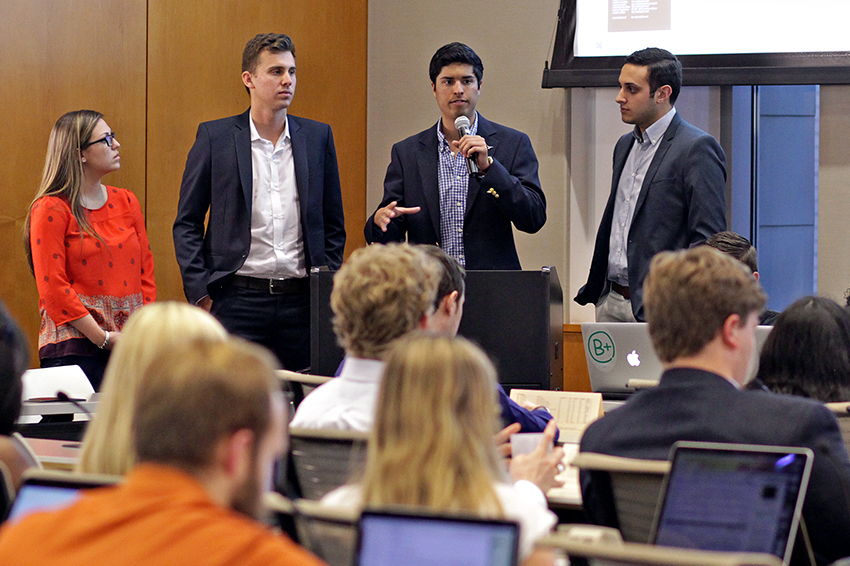Eighty-seven percent of students are now in support of unassigned seating in the student sections of Darrell K Royal-Texas Memorial Stadium, according to a survey conducted by the authors of Assembly Resolution 27.
Student Government passed AR 27 unanimously on Tuesday. As discussed at the previous SG meeting, the resolution proposes to eliminate the row and seat number from the Big Ticket. This way students will have the option to sit wherever they would like within their assigned sections.
“Unassigned seating will reward students who show up early to games with seating closer to the field,” said Matt Offill, Cockrell School of Engineering representative and mechanical engineering junior. “Passionate students who show up earlier will be closer together, which creates a louder and more enthusiastic environment.”
University-wide representative Madison Huerta said the resolution now includes a clause which states the legislation will have no impact on the current American with Disabilities Act accommodations in place.
“This resolution is in no way meant to hurt anyone,” said management junior Huerta. “It should not only positively affect students, but the football team’s performance as well.”
Joint Bill 1, which amends the Campus Wide Election Code to reflect changes from the 2016 Election Code Taskforce, was also passed. This bill was drafted in response to recommendations from past members of the Election Advisory Board, which conducts and oversees all student elections, as well as from members of the SG Supreme Court and four other entities involved in campus-wide elections.
Adit Bior, administrative director and philosophy senior, said the changes produced in the bill reflect a desire to make elections consistent and educational.
Kevin Cokley, director of the Institute for Urban Policy Research and Analysis and UT professor, was a guest speaker at the meeting.
Cokley discussed his research in the area of African-American psychology. Cokley said he focuses mostly on racial and ethnic identity development, academic motivation and academic achievement in his research.
“I have challenged the notion that African American students are anti-intellectual,” Cokley said. “This has led me to critically re-examine the impact of racial and ethnic identity and gender on academic achievement.”
Research always reflects a researcher’s general experience and the struggles he faces in life, Cokley said. He said he cannot help but feel like an impostor sometimes in a place where there are so few African-American faculty members.
“When I started teaching, my biggest fear was that I would be in a classroom, and that I would have some white students looking at me as someone who doesn’t belong and was merely there because of affirmative action,” Cokley said. “I wanted to make sure that in everything that I said and did, that I did not confirm what I thought were stereotypes people had about me.”















